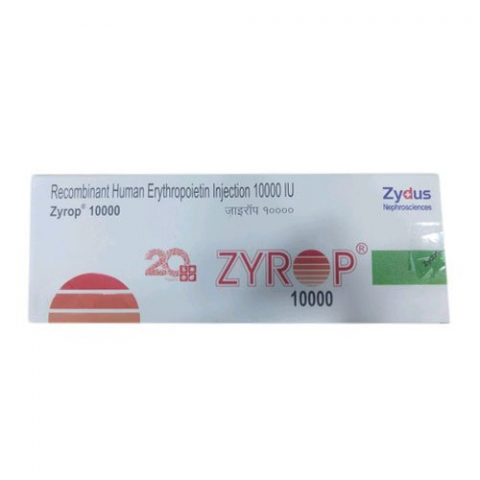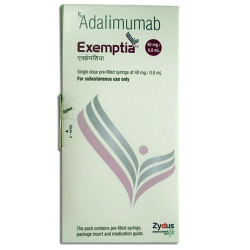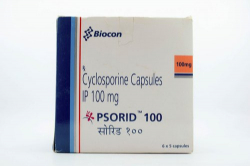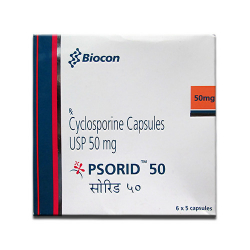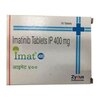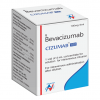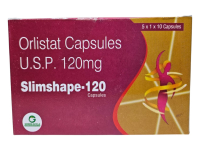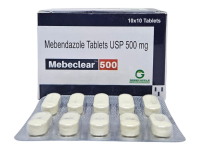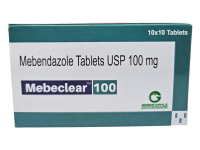Zyrop 10000IU (Erythropoietin)
Zyrop 10000IU (EPO) is a hormone included by the kidney which promotes thered blood cells formation by the bone marrow. The kidney cells which make Zyrop 10000IU are sensitive to low oxygen levels in the blood that travels through the kidney.
DESCRIPTION
Zyrop (EPO) is a hormone included by the kidney which promotes thered blood cells formation by the bone marrow. The kidney cells which make Zyrop are sensitive to low oxygen levels in the blood that travels through the kidney.
These cells make and release Zyrop when the oxygen level is too low. A low oxygen level may indicate a diminished number of red blood cells (Anemia), or haemoglobin molecules that carry oxygen through the body.
INDICATION
Zyrop injection is Indicated in adult and paediatric Patients for the treatment of Anemia due to Chronic Kidney Disease (CKD) in patients on dialysis and not on dialysis. Patients for the treatment of Anemia due to zidovudine in patients with HIV-infection.
Patients for the treatment of Anemia because of concomitant myelosuppressive chemotherapy, and upon initiation, there is a minimum of two additional months of planned chemotherapy. Patients for the reduction of allogeneic RBC transfusions in patients undergoing elective, noncardiac, nonvascular surgery.
ADME PROPERTY
ABSORPTION
Duration to maximum plasma concentration of Zyrop is 20 to 25 hours and bioavailability of SC injectable Zyrop is much lesser than IV injection and is 20-24%. Adult and paediatric with CRF peak plasma level is 5 to 24 hours
DISTRIBUTION
Zyrop has no plasma protein binding. Volume of distribution is range of 40-63.80 ml/kg
METABOLISM
Binding of erythropoietin and epoetin alfa to EPO-R leads to cellular internalization, which contains the degradation of the ligand. Erythropoietin and epoetin alfa may also be disgraced by the reticuloendothelial scavenging pathway or lymphatic system
ELIMINATION
Zyrop injection are eliminated through uptake and degradation via the EPO-R-expressing cells and may also contain other cellular pathways in the interstitium. Only a less amount of unchanged epoetin alfa is found via urine. Half-life in adult is 4 hours and for children is approx. 6 hours Adult and paediatric with CRF the half-life is 4 to 13 hours
DOSAGE MANAGEMENT
DOSAGE AND ADMINISTRATION OF ZYROP INJECTION
MOST NECESSARY DOSING INFORMATION FOR ERYPRO SAFE
Administer Evaluation of Iron Stores and Nutritional Factors Monitoring of Response to Therapy in Anemia Formulation Based Selection In pregnant women, lactating women, neonates, and infants use only single-dose vials (the benzyl alcohol-free formulation)
PATIENTS WITH CHRONIC KIDNEY DISEASE
FOR ALL PATIENTS WITH CKD:
When starting or adjusting therapy, monitor haemoglobin levels at least weekly until stable, then monitor at least monthly. Avoid rises of the dose more frequently than once every 4 weeks. Reduces in dose can occur more frequently. Avoid frequent dose adjustments. If the haemoglobin increases rapidly, decrease the dose of Zyrop by 25% or more as required to reduce fast responses.
FOR ADULT PATIENTS WITH CKD ON DIALYSIS
Start Zyrop therapy when the haemoglobin level is less than 10 g/dL. If the haemoglobin level approaches or exceeds 11 g/dL, decrease the dose of Erypro safe. The usual starting dose for adult patients is 50 to 100 Units/kg 3 times weekly IV or SC. The intravenous route is prescribed for patients on haemodialysis.
FOR PEDIATRIC PATIENTS WITH CKD
Start Zyrop therapy only when the haemoglobin level is less than 10 g/dL.If the haemoglobin level approaches or exceeds 12 g/dL, reduce or interrupt the dose of Erypro safe. The usual starting dose for paediatric patients (ages 1 month or older) is 50 Units/kg 3 times weekly intravenously or subcutaneously.
ZIDOVUDINE-TREATED PATIENTS WITH HIV-INFECTION
The prescribed initial dose in adults is 100 Units/kg as an IV or SC injection 3 times per week. Discontinue Zyrop if an increase in haemoglobin is not achieved at a dose of 300 Units/kg for 8 weeks.
PATIENTS ON CANCER CHEMOTHERAPY
Start Zyrop in patients on cancer chemotherapy only if the haemoglobin is less than 10 g/dL, and if there is a minimum of two additional months of planned chemotherapy. Use the less dose of ZYROP needed to avoid RBC transfusions. Usually Starting Dose: For Adults administer the dose of 150 Units/kg subcutaneously 3 times per week until completion of a chemotherapy course or 40,000 Units subcutaneously weekly until completion of a chemotherapy course. Paediatric Patients (5 to 18 years): 600 Units/kg intravenously weekly until completion of a chemotherapy course.
SURGERY PATIENTS
The prescribed Zyrop injections are:300 Units/kg per day subcutaneously (SC) for 15 days total: given daily for 10 days before surgery, on the day of surgery, and for 4 days after surgery. And 600 Units/kg subcutaneously (SC) in 4 doses given the patients 21, 14, and 7 days before surgery and on the day of surgery.
OVERDOSE
Zyrop overdose can cause by above the desired level of haemoglobin levels, which must be controlled with discontinuation or reduction of Zyrop dosage with phlebotomy.
SIDE EFFECTS
SIDE EFFECTS CAUSED DUE TO ZYROP INJECTION
The injection Zyrop as some serious side effects like Increase mortality, Myocardial infarction, stroke and thromboembolism Increased mortality/ risk of tumor progression or recurrence in patients. Hypertension, Seizures, PRCA, Serious allergic reactions, Severe cutaneous reaction
PRECAUTION
Patients go through surgery are at high risk for DVT; concomitant DVT prophylaxis is strongly recommended In Zidovudine-treated patients may have response only when zidovudine dosage <4200 mg/wk. and endogenous epoetin <500 U/mL In Dialysis patients having IV administration recommended to decrease red-cell aplasia risk; rises anticoagulation with heparin may be needed to prohibit clotting of extracorporeal circuit during haemodialysis Avoid increase dose more frequently than once monthly.
Patients Contains albumin; may carry extremely specific risk for transmission or viral diseases or Creutzfeldt-Jakob disease. In Cases of PRCA and of severe Anemia, with or without other cytopenia’s that appears following the growth of neutralizing antibodies to erythropoietin resulted in patients treated with epoetin alfa High incidence of death, myocardial infarction (MI), stroke, and thromboembolism: while Using ESAs to aim haemoglobin level of >11 g/dL rises risk of severe adverse cardiovascular reactions
Special caution usage in hypertension, iron deficiency, folate or B12 deficiency, congestive heart failure (CHF), coronary artery disease (CAD), seizure disorder, sickle-cell disease, haemolytic Anemia, porphyria, hematologic disorders Cancer patients will Increased tumor development rate when dosed to achieve haemoglobin level of >12 mg/ld. In Chronic renal failure patients at starting of treatment, transferrin saturation should be ≥20% and ferritin ≥100 ng/mL
DRUG INTERACTION
Interaction of dichlorphenamide and Zyrop both decrease serum potassium use with caution and monitor
Zyrop co administration with methyltestosterone will make high effects of epoetin alfa by pharmacodynamic synergism. Because of potential adverse effects of drug combination should be avoided
Concomitant use with danazol and fluoxymesterone, oxandrolone, oxymetholone will increase effects of epoetin alfa by pharmacodynamic synergism. Androgens used will reduce needed dose of epoetin alfa.
CONTRAINDICATION
The patients are contraindicated to Zyrop injection as follows Uncontrolled high blood pressure, Pure red cell aplasia which initiated after therapy with Zyrop , severe allergic reactions by injection
PREGNANCY & LACTATION
The limited available data on pregnancy women have insufficient to describe a drug associated risk of adverse development outcomes. Zyrop from multiple dose which contains benzyl alcohol is contraindicated to pregnant women. If pregnant women needed treatment with Zyrop then use benzyl alcohol free formulation to avoid harm to foetus.
LACTATION
Zyrop from multiple dose which contains benzyl alcohol is contraindicated to lactating women. Advise the breast-feeding women not to feed for at least 2 weeks after the last dose. Possible similar harm to infants exposed to benzyl alcohol through human milk.
STORAGE
Store at 2°C to 8°C Do not freeze the injection Avoid using of shaken or frozen Zyrop injection, do not shake Store the injection in original container until use to away from light
MISSED DOSE
If dose is failed to take by patients then immediately have the dose you remember before next dose otherwise skip the missed, if next dose time reached. Do not take extra dose at a time. Take advice of the doctor about missed dose
| Brand name | Zyrop |
| Active substance | Erythropoietin 10000IU |
| Packaging | 1 PFS |
| Product form | Injection |
| Strength | 10000IU |
There are no comments yet













